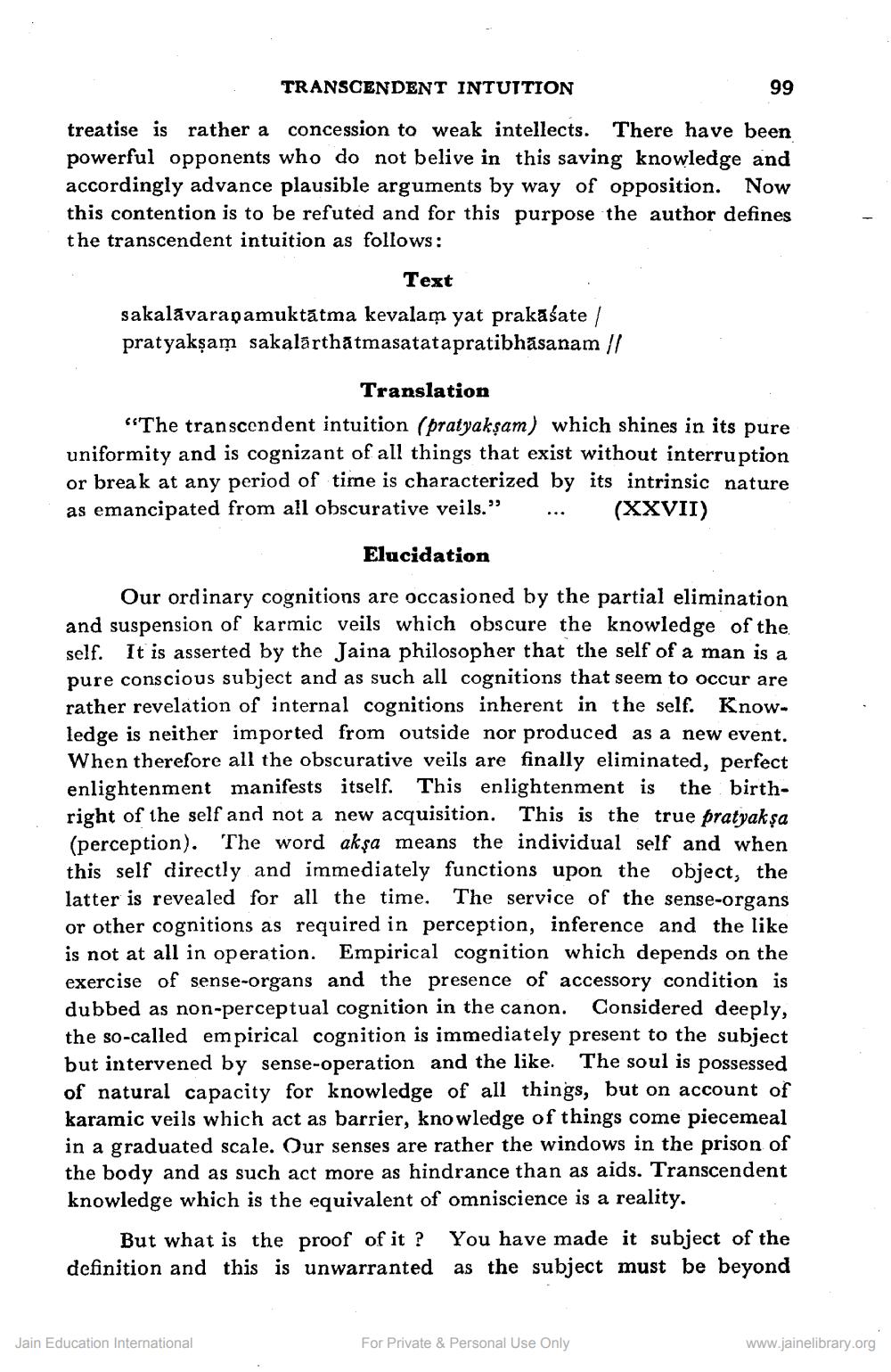________________
99
treatise is rather a concession to weak intellects. There have been powerful opponents who do not belive in this saving knowledge and accordingly advance plausible arguments by way of opposition. Now this contention is to be refuted and for this purpose the author defines the transcendent intuition as follows:
TRANSCENDENT INTUITION
Text
sakalavarapamuktātma kevalam yat prakāśate / pratyakṣam sakalārthātmasatatapratibhasanam //
Translation
"The transcendent intuition (pratyakşam) which shines in its pure uniformity and is cognizant of all things that exist without interruption or break at any period of time is characterized by its intrinsic nature as emancipated from all obscurative veils."
(XXVII)
Elucidation
Jain Education International
...
Our ordinary cognitions are occasioned by the partial elimination and suspension of karmic veils which obscure the knowledge of the self. It is asserted by the Jaina philosopher that the self of a man is a pure conscious subject and as such all cognitions that seem to occur are rather revelation of internal cognitions inherent in the self. Knowledge is neither imported from outside nor produced as a new event. When therefore all the obscurative veils are finally eliminated, perfect enlightenment manifests itself. This enlightenment is the birthright of the self and not a new acquisition. This is the true pratyakṣa (perception). The word akşa means the individual self and when this self directly and immediately functions upon the object, the latter is revealed for all the time. The service of the sense-organs or other cognitions as required in perception, inference and the like is not at all in operation. Empirical cognition which depends on the exercise of sense-organs and the presence of accessory condition is dubbed as non-perceptual cognition in the canon. Considered deeply, the so-called empirical cognition is immediately present to the subject but intervened by sense-operation and the like. The soul is possessed of natural capacity for knowledge of all things, but on account of karamic veils which act as barrier, knowledge of things come piecemeal in a graduated scale. Our senses are rather the windows in the prison of the body and as such act more as hindrance than as aids. Transcendent knowledge which is the equivalent of omniscience is a reality.
But what is the proof of it? You have made it subject of the definition and this is unwarranted as the subject must be beyond
For Private & Personal Use Only
www.jainelibrary.org




